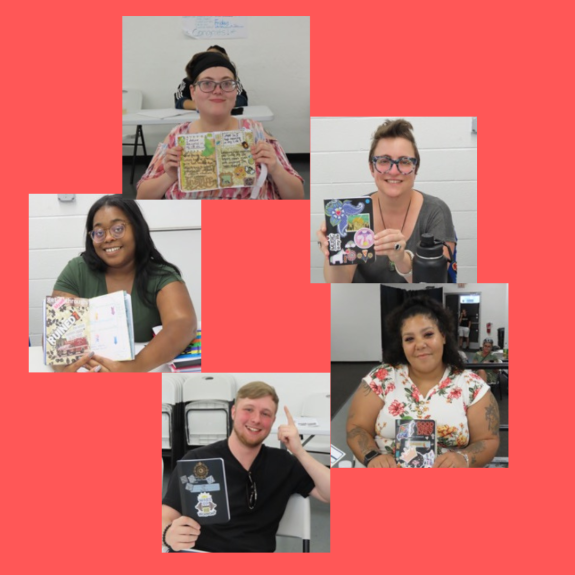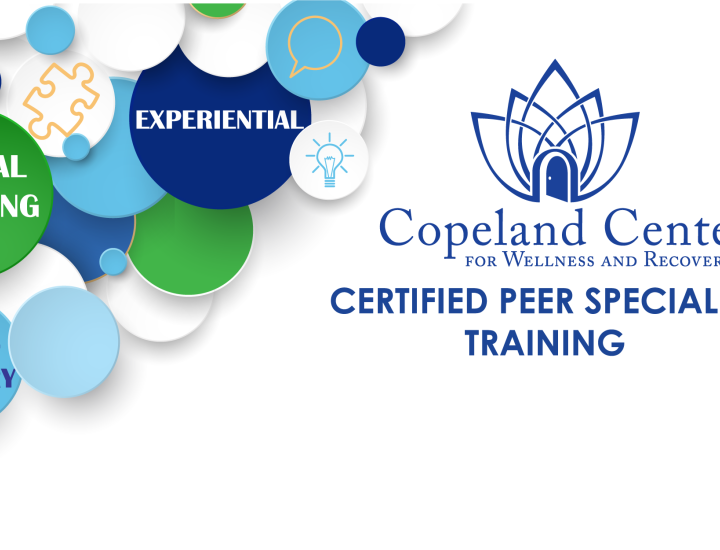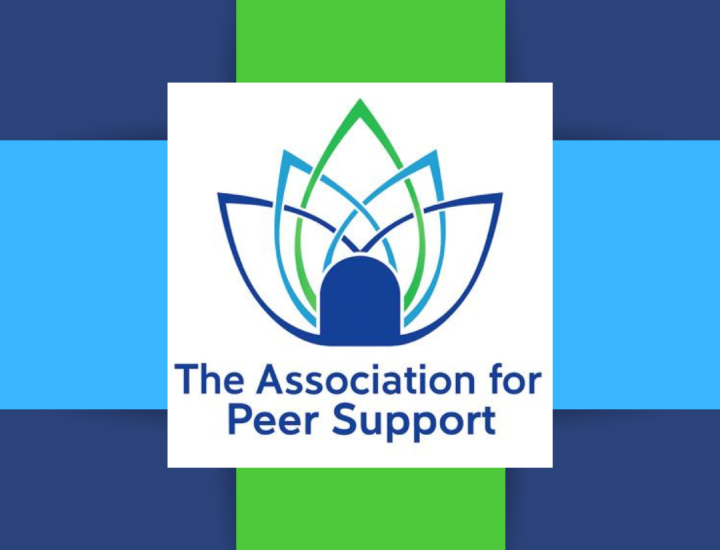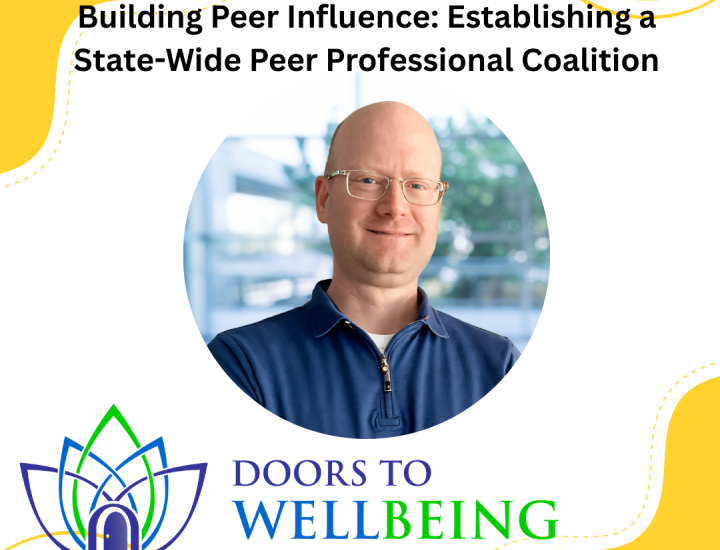Taking Action for Whole Health and Wellbeing
The Copeland Center’s Taking Action for Whole Health & Wellbeing course is a co-facilitated group process that supports individuals in creating a personalized system for recovering, sustaining, and/or improving their whole health outcomes and enhancing their lifestyle.
The curriculum is based on the US Substance Abuse and Mental Health Administration’s (SAMHSA) Taking Action curriculum and other recovery publications developed with input from individuals with lived experience of recovery from mental health, addictions, and co-occurring challenges. The topics, practices, and approaches in this program have demonstrated effectiveness through various research studies and with input from care providers. The Copeland Center’s Taking Action for Whole Health & Wellbeing program combines key curriculum topics with evidence-based and experiential-based peer-to-peer strategies.
Taking Action for Whole Health and Wellbeing is a curriculum led by two peer co-facilitators trained in the Copeland Center’s process for evidence-based, and experiential-based peer strategies. Co-facilitator’s training incorporates over two decades of peer-based experience and evidenced-based engagement strategies such as Self-Directed Care, Wellness Self-management, Motivation Theory, and Peer Support.
Essential Elements:
· Recovery, wellness, self-care, self-compassion, and action orientation
· Focus on self-esteem, connection, hope, empowerment, self-determination, education, community inclusion and self-advocacy
· Building a Strong Support System
· Personal and Community Resources
· Wellness tools, skills, and strategies for whole health and wellbeing
· Physical Health and the effects of exercise, nutrition, light, sleep, and smoking
· Finalizing Wellness Tools: Spirituality, Complementary, Controversial, Alternative and Additional tools
· Developing Action Plans for Triggers, Early Warning Signs, Difficult Times
· Healthcare and medications
· Crisis Planning and Advanced Directives
· Post Crisis and Post Relapse planning
· Wellness Topic: Employment, Meaningful Activity, Motivation and Lifestyle
The curriculum can be delivered by covering the Essential Elements over at least 20 hours via three full-day retreats or multiple sessions of at least 2.5 hours each based on a group between 12-18 participants. Adequate time is needed to allow space for the experiential engagement of all participants. These essential elements are the active ingredients of our evidence-based strategies. An expanded and enhanced program may include up to 24 module sessions intended to be provided for individuals over an extended period.
Taking Action for Whole Health & Wellbeing and this co-facilitation training is designed with the experience and collective knowledge of people who have been working together to achieve recovery and wellness for over two decades to share their personal expertise in dealing with and overcoming many health and overall life challenges. We have developed this work with over two decades of input from co-facilitators working together from around the world. The Copeland Center for Wellness & Recovery works to listen to and include the input of every member in these courses. The experiential sharing that we do continues to grow and improve upon this wellness and recovery knowledge and co-facilitation approaches to this work.
Taking Action for Whole Health & Wellbeing and the co-facilitation training is designed with the experience and collective knowledge of people who have been working together to achieve recovery and wellness for over two decades. We work in these courses to share our personal expertise in dealing with and overcoming a diversity of health and overall life challenges. We have developed this work through the input from co-facilitators working together from around the world for over two decades.
In addition to this course, we offer certified co-facilitation training to implement whole health and wellbeing programs tailored to your community and offer a train-the-trainers course called Certified Wellbeing Mentors to sustain your local network of co-facilitators.

Certified Wellbeing Mentors Registry
See trained Certified Wellbeing Mentors across the US and around the world.
Promising Program Outcomes for Taking Action for Whole Health and Wellbeing
The Copeland Center has now offered more than 40 workshops, facilitator trainings, and certified wellbeing mentoring courses on Taking Action for Whole Health and Wellbeing, and here's what we have taken away from people who have been in our co-facilitated workshops.
Implementation Guide
Taking Action for Whole Health and Wellbeing is a program that centers us on self-care and self-compassion and provides a structure for increasing our wellness even during the most difficult times.

Peer Supported Wellness & Recovery: A Correspondence Course
This course is for anyone interested in taking action to enhance their wellness and recovery and make positive changes in their lifestyle. This is an experience of strengthening one's self-efficacy and creativity with the guided support of a Copeland Center-certified peer supporter.
Attend an Event!
Join us for evidence-based and experiential-based trainings and events!
Stay Updated
You are invited to stay connected and learn more about trainings, wellbeing programs, continuing education opportunities, and more!







